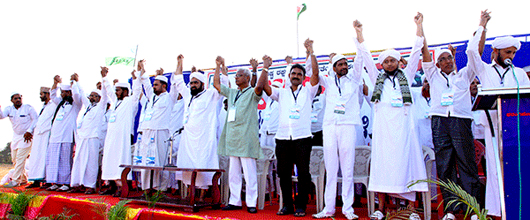Two cases of Human Metapneumovirus (HMPV) were reported in Bengaluru on January 6 - a 3-month-old baby who has been discharged and an 8-month-old who is recovering at a hospital in the Karnataka capital. This marks the first reported cases of HMPV in India.
The infected infants and their families have no recent travel history, ruling out exposure from other regions or countries, the health department said.
HMPV is a respiratory virus that often causes mild symptoms resembling a cold but can lead to other complications, particularly in infants, the elderly, and those with weakened immune systems. The virus can occasionally trigger pneumonia or exacerbate chronic respiratory conditions. Cases typically rise during the winter and early spring.
The Centre announced on Sunday that it is monitoring HMPV and other respiratory viruses, especially following recent reports of increased respiratory illnesses in China. A Joint Monitoring Group (JMG) convened on January 4 to evaluate the situation, with representatives from the World Health Organisation (WHO), National Centre for Disease Control (NCDC), Indian Council of Medical Research (ICMR), and other health organisations participating.
Respiratory illnesses in China align with seasonal variations caused by viruses such as influenza, RSV, and HMPV. Current surveillance data from India does not indicate any unusual surge in respiratory infections, according to the Ministry of Health and Family Welfare.
As a precaution, the Centre has increased laboratory capacity for HMPV testing. The ICMR will monitor HMPV trends throughout the year, alongside other respiratory illnesses such as influenza-like illness (ILI) and severe acute respiratory infections (SARI). A robust network of surveillance systems, including those operated by ICMR and the Integrated Disease Surveillance Programme (IDSP), continues to track respiratory infections across the country.
Hospitals have been advised to strengthen isolation protocols for suspected cases, ensure the availability of essential medicines, and promptly report ILI and SARI cases through the Integrated Health Information Platform (IHIP).
Precautions to Take:
To reduce the risk of HMPV infection, individuals are advised to:
- Wash hands frequently with soap and water for at least 20 seconds.
- Avoid close contact with people who have respiratory symptoms.
- Wear masks in crowded or high-risk areas, especially during seasonal outbreaks.
- Maintain good indoor ventilation by keeping windows open when possible.
- Disinfect commonly touched surfaces regularly, such as doorknobs, toys, and tables.
- Monitor infants, the elderly, and people with chronic illnesses for symptoms like persistent cough or breathing difficulties.
- Seek prompt medical attention if respiratory symptoms worsen or persist.






Comments
Oh my goodness! Impressive article dude! Thank you, However I am having problems with your RSS.
I don't understand the reason why I cannot subscribe to it.
Is there anybody else getting identical RSS problems?
Anyone that knows the solution can you kindly respond?
Thanx!!
My blog post helpdesk support: http://aress.support
Add new comment